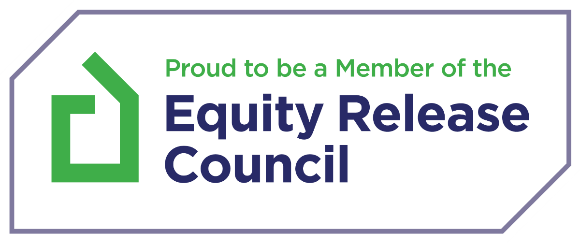Mortgages
Providing individual mortgage advice; unique to you
Here at Cotswold Mortgage Solutions we work hard to find the right mortgage for you. We aim to make the process as painless as possible. We look closely at your personal circumstances in order to match you with the most suitable mortgage from a comprehensive range of providers. We want to find the right lender that fits your requirements and rather than you going from lender to lender we do the hard work for you.
Unlike many other advisers, we have access to a wide selection of lenders who we can recommend for your needs. We therefore pride ourselves on finding the most suitable mortgage for your needs whilst keeping the experience as smooth as possible.
Contact us to find out how we can help you ensure your tomorrow, starts today! Call us on 01608 690740 or email admin@cotswoldmortgagesolution.co.uk.

Buying a Home
Buying a house is one of the most important purchases you will make, and buying a home for the first time will be an even more daunting prospect. Add to this the vast array of mortgage products available from a wide range of sources and you could be left with a high-stress, confusing decision. To help you with making the right decision we have put together 10 top tips for you.
- Ensure that you are realistic when working out exactly how much you can afford to spend on your new house. You should ensure the intended mortgage is affordable (by doing a budget calculation). Even a newly built house will require some sort of furnishings, whereas older properties may require extensive work, such as re-flooring, tiling or renewing the wiring. Make sure that you factor in all these likely expenses, in addition to the purchase price, and other fees such as conveyancing and stamp duty.
- When buying for the first time, there may be a number of details in the houses you are looking at, which you may not pick up. Always take an experienced home buyer, such as one of your parents, or a home-owning friend, when looking at property. If this is difficult to arrange, then make sure you at least get some assistance once you have selected a property you like and are arranging a second viewing.
- If you have been used to living at home with your parents, remember to budget for expenses such as council tax, gas and electricity bills, boiler servicing, and other home repairs.
- Make sure you know what the likely council tax charge will be in your new property. The selling agent should be able to tell you what tax band the house you are interested in buying is in, and how the charges are levied by your local authority.
- Even if you do not have children, remember that property in the catchment area of good local schools will always be much easier to sell on. However, this may also be reflected in a higher purchase price.
- Always consider how your transport arrangements will change in your new house. If you have a car, your insurance premium may increase dramatically if you move from a town with relatively low crime into a city centre with higher crime rates or if you move from your parents’ house with a locked garage to a smaller terraced house with on-street parking.
- Consider the availability of public transport services, making sure you find out local bus routes, the frequency of train services from your nearest station, and, if you are moving a long distance, the range of flights available from your local airport. Even if you drive everywhere, this information will be useful for anyone coming to visit you who does not drive.
- Write down a list of local amenities which are important to you. This may include shops, restaurants, pubs, sports centres, parks, and cinemas. If you enjoy activities such as walking, or cycling, the neighbourhood you plan to move in to may be very different to the one your parents are living in, and may not have the same access to parks and other recreational facilities. Before making any final decision about where to move to, take a stroll or bike ride around the local area, and note down where the key facilities are.
- If you are a heavy internet user, check to see that broadband or other high speed internet is available in the street you are moving into. The selling agent should be able to tell you this.
- Try, where possible, to find somewhere to live that is close to your main place of work. Commuting can be one of the biggest household expenses, and as you are likely to be spending much more time on domestic chores and/or DIY, living somewhere which minimises your commuting distance will be very important. If property is more expensive nearer to your place of work, make sure you weigh up this additional expense, when compared to the costs and time of commuting. You may wish to ask colleagues in your workplace to see if there are possibilities to lift share with anyone from the area.

Equity Release
Equity Release products are designed for people over 55 to take cash value from their homes without having to move. There is a wide range of Equity Release products which can provide a valuable source of income for some people.
These schemes allow the borrower to stay in their home and benefit from the cash released from the equity of their property until certain events occur for example moving into long-term care or death. At this point the lender will be repaid, usually through the sale of the property.
There are different types of Equity Release Scheme, some of which mean ownership or part-ownership of the property passes to the Equity Release provider and others where a cash sum is drawn from a promise to repay the lender on the sale of the property. It is important if you are considering an Equity Release scheme to understand the differences between these scheme types and this is something we can help you with.
Equity release can be very useful in some circumstances but it is essential to seek advice on whether it is suitable for you. We will help you understand if it is the right option for you, so please get in touch if you are considering an Equity Release scheme. We are experts in this market and will make sure you receive the right advice.

Remortgage
Why Remortgage?
Your existing mortgage deal may be coming to an end and your about to move onto the lenders standard variable rate which could result in an increase in your monthly mortgage payments.
Remortgaging before your term ends could potentially save you money by switching to another deal or another lender. There are plenty of reasons why you might want to consider a remortgage, perhaps you want to cover the cost of home improvements or pay off more expensive debts.
Whatever your requirements we are here to help.

Buy to Let
Whether you’re becoming a landlord for the first time or you’re looking to expand an existing portfolio you will need to take out a buy to let mortgage rather than a standard residential mortgage. A buy to let mortgage is specifically for people who are buying a property to rent out to a tenant or tenants.
How do buy to let mortgages differ from residential mortgages? :
- Interest rates are usually higher on buy to let mortgages compared to residential
- Whereas for residential mortgages your deposit could be as little as 5% of the property value you will have to pay at least 25% for a buy to let mortgage.
- Unlike a standard mortgage, where the amount you can borrow is primarily linked to your income, with a buy to let mortgage, the lender will not only assess your income but will also require a surveyors opinion to ascertain the rent achievable, relating to that property on which the mortgage is secured.
We can help you arrange a bespoke buy to let solution that’s tailored to you. Call our expert team today to find out more.

Help to Buy
The Help to Buy Equity Loan scheme is available to both first time buyers and those that have bought a property before. If you have a minimum 5% deposit and want to buy a new build home (maximum full purchase price £600,000), you’ll be able to access the Help to Buy Equity Loan scheme. You will need to be able to take out a mortgage for 75% of the value of the property and the remaining 20% will be funded by the government.

Get in touch...
If you want to speak to us or contact us direct, either give us a call on 01608 690740, email admin@cotswoldmortgagesolution.co.uk. or fill in the form below and we will get back to you as soon as we can. Thank you.
